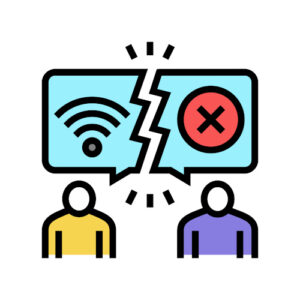Has technology made society more equitable? I don’t think so. This is one debate where I knew it would take a lot to sway my vote.
 Are there aspects of technology that help create a more equitable society? Absolutely. But this doesn’t mean that technology has created an equitable society. Unfortunately, inequity is everywhere even with the power of technology.
Are there aspects of technology that help create a more equitable society? Absolutely. But this doesn’t mean that technology has created an equitable society. Unfortunately, inequity is everywhere even with the power of technology.
As noted by the agreeing team, there are several ways that technology has made society more equitable. But what does equitable use of technology even mean? As presented by Suzanne K. Damarin, “Equitable use of educational technology requires that instructors recognize and adapt their technologically-enhanced instruction to a wide variety of students and to an equally wide range of computing facilities accessed by students”. This approach ensures that all students, regardless of their socioeconomic background, have access to the same quality of education, thereby making technology a tool for levelling the playing field in education. Damarin also notes that there are five equity principles of educational technology:
- Parsimony: Use the least costly tool that will accomplish the task.
- Accessibility: Use the most accessible technology that will accomplish the task.
- Multiplicity: Make computer-based materials available in multiple formats.
- Separability: Make parts of documents and files easily separable.
- Full Utility: Teach students to make maximal use of any tool available.

By adhering to these principles, educational technology can be designed and implemented in a way that ensures all students have equitable access to the tools and resources they need to succeed. But, this is where the digital divide comes in. The reality is that not all students have access to technology.
The documentary film, “Without a Net“, highlights economically disadvantaged schools that struggle with technology access, which leaves their students unprepared for the digital economy. Despite technology’s potential to level the playing field, the documentary shows that many schools face major challenges like poor connectivity, lack of devices, and insufficient teacher training. The film emphasizes that real progress requires reliable internet, updated devices, better teacher support, and strong leadership. Until these issues are addressed, technology may widen the gap rather than close it.
I think that does it. Technology hasn’t led to a more equitable society. IF you have access to technology you can create a more equitable classroom environment, but at the end of the day, that’s IF you have access. And the statistics don’t lie.
One thing that stood out to me during this debate was the idea that technology, and social media platforms, are essentially a form of modern colonization. I never even considered this and find it to be an interesting concept. I looked a bit more into this and I was surprised to find it isn’t a new idea. The Centre for International Governance Innovation explores this concept further:
With that being said, I think the answer is simple – technology has not created a more equitable society. Maybe it has even made it more inequitable.
Technology has led to a more equitable society: All students (including the debaters) should read the articles chosen by the two debate teams (listed below) and should also refer to the articles embedded in the debate description (above, under today’s activities – no need to read them all, but take a general overview) and compose a blog post reflecting on the articles as well as the debate itself.